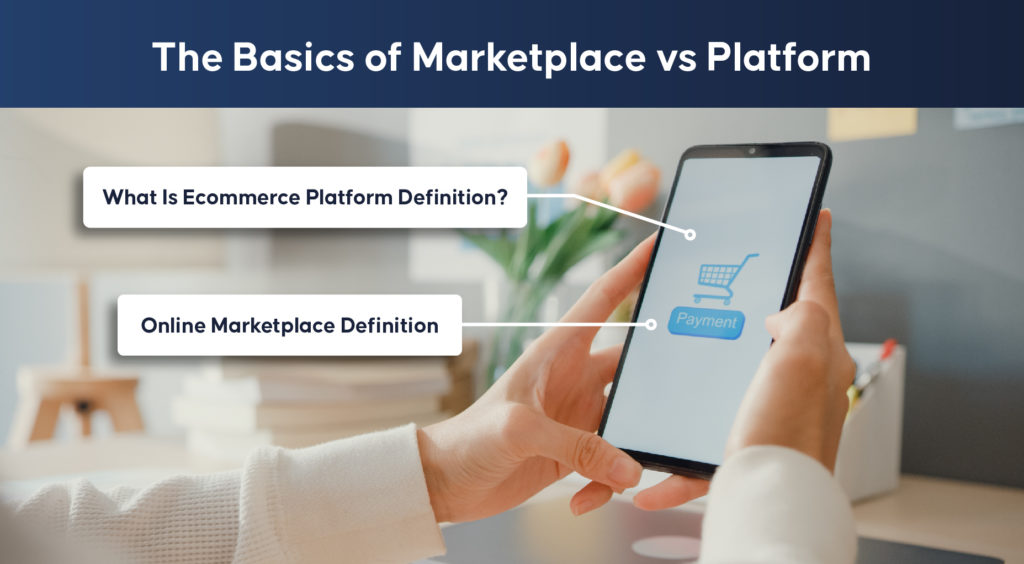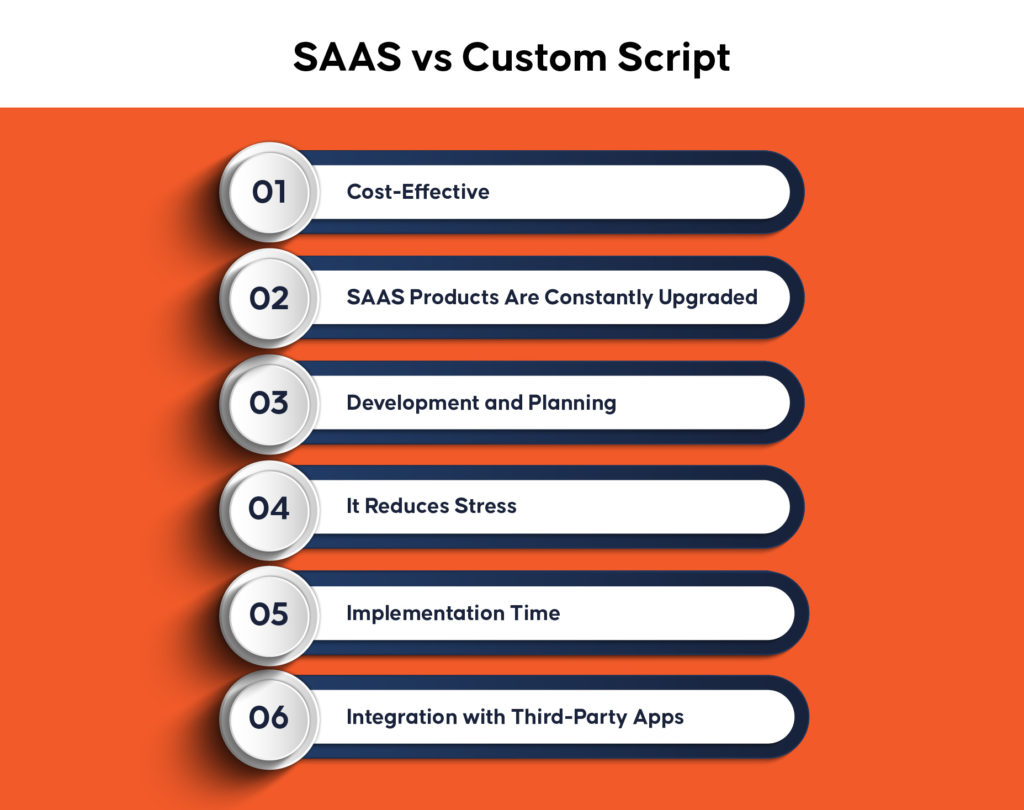Inquivix HQ
1-903, 18 Eonju-ro 146-gil,
Gangnam-gu, Seoul, Korea
06057

When it comes to marketplaces, there are two main types: custom marketplaces and SAAS marketplaces. So which one is better for your business? Deciding which technology to use for your own marketplace can be a little tricky, but essential for your business development.
Custom marketplaces are created specifically for a certain industry or niche. This can be beneficial because the marketplace will be tailored to the needs of the businesses that use it. SAAS marketplaces, on the other hand, are those that offer software as a service. This type of marketplace offers software services over the internet.
There are pros and cons to each type of marketplace. Custom marketplaces can be more expensive to create, but they offer a higher level of custom development. SAAS marketplaces have lower development costs, but may not be as customizable. When it comes to choosing a marketplace, it is important to consider the needs of your business. In this blog post, we will discuss the pros and cons of both types of marketplaces and help you decide which one is right for you.
What Is the Difference Between a Marketplace and a Platform?
Online retailers use various ways to connect with their customers. The two most common choices for businesses all around the world are e-commerce websites and e-marketplaces. Each solution takes you to a different audience. As a result, it’s one of the first things you have to consider before going live.
What Is an eCommerce Platform?
The first thing to know about an eCommerce business is that it uses the internet for purchasing and selling activities. In simpler terms, it is an online store, therefore, it is a program in which both sellers and purchasers take part. Ecommerce websites include website builders, accounting, and customer support systems. Lastly, consumers should be able to use an eCommerce platform to discover goods, compare them, shop with a virtual shopping cart, and then place an order.
If a business wants to establish a completely online store or supplement a physical location, an eCommerce platform is a good option. Shopify, BigCommerce, Magento, WooCommerce, and Wix are some of the most popular eCommerce platforms on the market today.
If you’re looking for a quick setup for a small business, Shopify, Squarespace, or WooCommerce are better choices. On the other hand, Magento and BigCommerce, on the other hand, are better suited for larger businesses with higher volumes. Certain website builders, like Wix or Squarespace, are easy to use without any coding knowledge because of their drag-and-drop functionality, whereas some platforms have more complex back ends and require more technical skills.

Pros and Cons of Selling on an Ecommerce Website
There are many advantages to using an e-commerce site for your business. One of the benefits of an e-commerce website is its convenience in collecting customer data for prospective marketing campaigns. It gives the business control over the site’s design, functionality, and navigation. Since all the products are from your own business, there won’t be any on-site competition. It would allow you to build brand awareness while enjoying fewer restrictions and rules.
But it does have its cons. One of the disadvantages is the effort needed to drive traffic to the e-commerce store and customer engagement. It would also require more initial capital to build the website and continuous expenses for maintenance. It would also entail financial risks in scalability.
Definition of an Online Marketplace
An online marketplace platform enables consumers to buy from a variety of sellers. The marketplace’s operator isn’t in possession of any goods. The role of a multi-vendor marketplace is to show clients other people’s items and facilitate transactions, not to own any of them. There are now a plethora of online marketplaces, including Amazon, eBay, Etsy, Walmart, Alibaba, and many more.
Online marketplaces are fairly popular and have undergone considerable expansion. According to experts, global marketplaces will account for more than 40% of all internet retail sales. Furthermore, placing your business where your consumers frequently visit may increase revenue from selling on internet marketplaces.
Pros and Cons of Selling in an Online Marketplace
Online marketplaces get more traffic and customer engagement because there are diverse businesses operating there. Running an online marketplace would involve fewer financial risks and no efforts to keep inventory. It’s quick to set up, with a very low setup cost.
However, businesses would have to compete with others from the same industry. It would not create much brand awareness since you are not running your own shop. Since you do not get customer data, it would not help you in building a customer list for future marketing campaigns.
SAAS vs. Custom Script
Marketplace models are fast becoming front-runner solutions for businesses reorienting their efforts to online channels. They provide a flexible, yet focused approach to sales, allowing businesses to connect with customers, diversify their products, and grow their business. Online marketplace owners can reap the benefits with lower financial risks.
Many businesses have already built the technological basis for giving better experiences to their vendors and customers, so if you haven’t yet entered this area, you must take action quickly to avoid falling behind. The choice you need to make in order to benefit from this opportunity is whether to develop a custom marketplace or go with a SAAS option.
Cost-Effective
One of the most common reasons companies seeks a SAAS marketplace is because it is cost-effective. A monthly subscription fee that may be increased or reduced based on the requirements makes it a more attractive alternative than custom marketplace software.
Custom scripts take time, effort, and planning, which add up to the expenses of the firm. All of these resources might be better utilized to meet other business requirements if the business utilized a SAAS marketplace.
SAAS Products Are Constantly Upgraded
Many businesses think that custom applications can be upgraded at any time. However, unless a firm has sufficient funding to devote to redirecting resources towards it, efforts to upgrade a custom model are much more challenging.
The SAAS software providers upgrade the services on a regular basis. The competitive market, feedback from customers, and experience gained through serving diverse industries drive SAAS providers to constantly upgrade their software. SAAS platforms are more advantageous to a company in terms of customer service and resource optimization.

Planning and Development
Choosing a custom marketplace in the early phases of a business is a waste of resources, and it doesn’t prepare you for the sort of activities you’ll want in your custom-built marketplace services. Starting your marketplace on a SAAS platform will allow you to familiarize yourself with features that are appropriate for your company and ones that aren’t.
You will be able to personalize your marketplace software after it has outgrown the SAAS platform and once you are more clear about your needs. Using a SAAS solution may also expose you to aspects that your team may not have considered while creating the custom marketplace.
It Lowers Stress
The responsibility of planning an application and obtaining approval from the organization is a more stressful aspect of developing custom marketplace technology. The ability of SAAS firms to work with a variety of organizations and their experience in doing so enables them to create features and processes that are adaptable to the needs of any company. While they aren’t a perfect fit for each firm, they meet the great majority of requirements.
According to studies, only about 15% of the features in any given program are utilized by businesses. Unless your consultancy marketplaces require unique features, it’s preferable to avoid the trouble of developing a custom marketplace.
Time to Implement
SAAS software is ready to be used right now. A custom marketplace needs time, effort, resources, and a long-term commitment to its development.
Does your business have enough time to develop a custom marketplace or does it need a marketplace solution now? Do an in-depth review of your business’s needs and goals. Then you’ll be able to identify which type of marketplace, custom or SAAS, your business needs.
Third-Party App Integration
Third-party programs can connect to software through APIs. Most SAAS applications are built on APIs, which allow for data exchange between them.
Custom marketplace software may not be designed with third-party applications in mind. It might need to be redesigned and re-coded in the future to be able to link with other programs.
Conclusion
When it comes to custom marketplaces vs. SAAS marketplaces, there are pros and cons to both options. Custom marketplaces give businesses more control over the products they sell and the customer experience, while SAAS marketplaces offer a pre-made platform with built-in features that can save businesses time and money. Ultimately, the best option for your business has to be decided by you.
